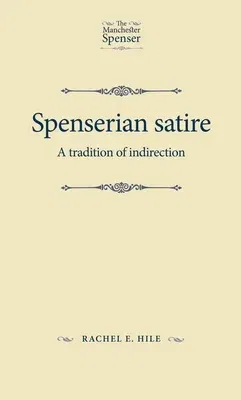Rachel Hile
(Author)Spenserian Satire: A Tradition of IndirectionPaperback, 17 May 2019

Qty
1
Turbo
Ships in 2 - 3 days
In Stock
Free Delivery
Cash on Delivery
15 Days
Free Returns
Secure Checkout

Part of Series
Manchester Spenser
Part of Series
Manchester Spenser Mup
Print Length
224 pages
Language
English
Publisher
Manchester University Press
Date Published
17 May 2019
ISBN-10
1526139510
ISBN-13
9781526139511
Description
Product Details
Author:
Book Format:
Paperback
Country of Origin:
US
Date Published:
17 May 2019
Dimensions:
21.34 x
13.97 x
1.52 cm
Genre:
British
ISBN-10:
1526139510
ISBN-13:
9781526139511
Language:
English
Location:
Manchester
Pages:
224
Publisher:
Weight:
249.48 gm